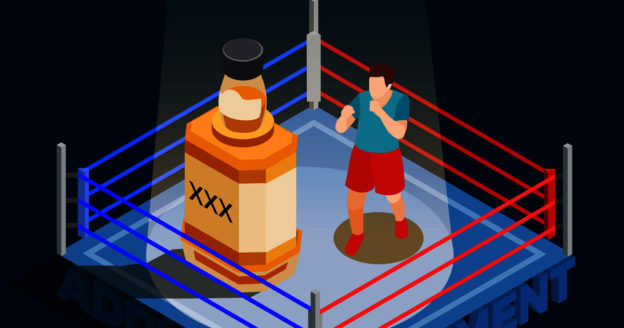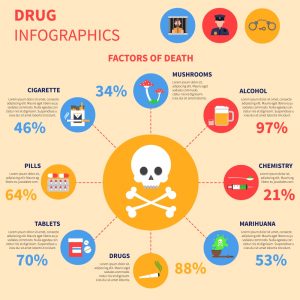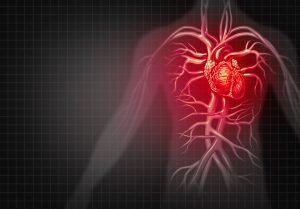“Thinking of alcohol as different from other drugs has caused a great many addicts to relapse. Many of us viewed alcohol separately, but we cannot afford to be confused about this. Alcohol is a drug. We are people with the disease of addiction who must abstain from all drugs in order to recover” – Narcotics Anonymous page 18
While alcohol may not be as widely classified as a drug like other harder, street drugs, it is technically defined as a depressant and considered a drug. We are a society tend to view it as separate because the role it plays in our society’s culture and social norms is separate. However, that does not change its physical properties.
When we look at how the word “drug” is defined we can most notably point to the definition of is being “a substance the causes habituation or a marked change in consciousness”. Alcohol clearly fits the bill of this definition among many others.
Also Read: Is Alcoholism a Disease or a Moral Failing?
Just as any other known drug, it is an intoxicant. It is one of the most commonly used and abused substances across the world and progresses into addiction for a large number of people regardless of ethnicity, race, gender, socioeconomic background, etc. Just as with most other drugs, alcohol will alter a person’s physical well-being with continuous and prolonged use, sometimes leading to overdose and death.
Just any most other drugs, individuals addicted to alcohol typically require some form of assistance to end use. Whether that be detoxing medically and with medications, separation from daily life by way of treatment, or intensive social support in the form of a religious community or recovery fellowship.
Alcohol is absorbed into the body’s bloodstream through the stomach and small intestinal tract before making its way to the brain as it impacts the central nervous system. Once the brain and central nervous system are altered by alcohol the body’s consciousness, heart rate, and breathing immediately start to stray from their normal baseline. Reaction times slow and coordination begins to lose its ability.
We all typically know the short-term effects about alcohol when it comes to how a person looks, how a person speaks, how a person behaves. But what about the long-term medical effects of frequent alcohol use? Did you know that alcohol abuse over time can fuel depression, create brain damage, lead to strokes, increase blood pressure, cause liver disease, and even contribute to cancer?
Just because we as a society look at alcohol differently in a cultural context, does not mean that alcohol doesn’t affect us the same way physically, emotionally, mentally, and spiritually as other drugs do. For us in recovery we cannot mistake the role alcohol plays in our recovery and the need to abstain from use of it just as we would with any other substance.
If you have doubts or questions about the role alcohol plays in your life, reach out to someone you know and trust to not pass judgement or criticism. Ask them what their thoughts and beliefs are on the topic. We suggest to speak with someone who has long-term sobriety to see how their perspective on alcohol may have changed throughout their journey of recovery.






